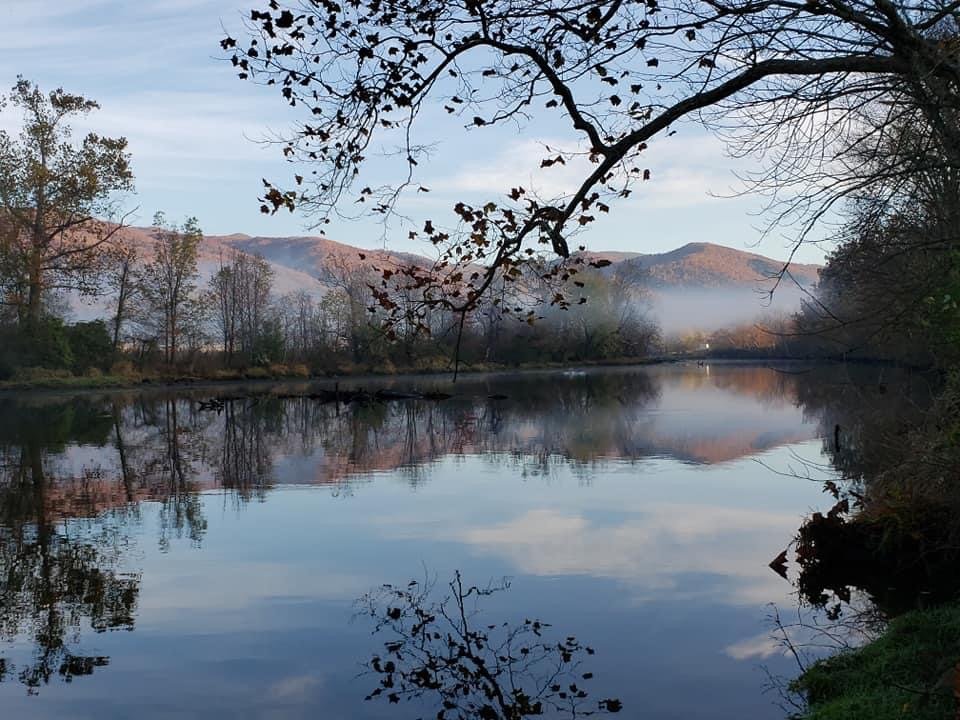
A voice cries out:
In the wilderness prepare the way of the Lord; make straight in the desert a highway for our God. Every valley shall be lifted up, and every mountain and hill be made low; the uneven ground shall become level, and the rough places a plain.
Isaiah 40:3-4
Hillbillies. Healing. Hope.
Jesus was no Appalachian, but he is no stranger to the hillbilly. In John 1:46, Nathaniel asks Philip “Can anything good come out of Nazareth?” Similar questions have been asked about my home and my people for generations. For some more “enlightened” folks, Appalachia and its hillbillies aren’t of much value — that is, of course, if you ignore their degradation of our land, exploitation of our workers, and mockery of our ways of life. From the beginning,“hillbilly” was always intended to be a derogatory label to remind mountain people and mountain communities of our lesser-than status in the American caste system and our seemingly fixed place near the bottom of the profit-making machine.
With hopes of offering a faithful response to such hogwash (other, perhaps more appropriate, descriptors are hardly couth for a homepage), this space is about reclaiming power for my community, my people, and my place — all of which have far too long been looked down upon, neglected, and mocked. It is a space to remind the broader public that we need no elegy. On the contrary, these mountains have been shaped and enlivened by sacred histories of diversity, resiliency, and ingenuity.
Of no surprise to those of us who call Appalachia home, we currently face yet another barrage of hostile forces seeking to sacrifice our families, homes, and hollers on the altar of “progress.” Even when our people and our place aren’t for sale, well-dressed visitors always seem to find ways to line their pockets with twelve pieces of silver — or whatever the “market” says we are worth these days. Although the reality seems grim, this space is not for the apathetic and nihilistic. It is for those who believe in the power of faith, hope, and love to remake the world after God’s own heart. It is for those who know deep in their bones that the struggle for liberation is as Appalachian as moonshine, banjos, and getting our corn from the jar. And it is for those who know that if we — meaning our people, our culture, and our mountains — are to survive, we must learn about what and who is killing us as well as from Whom and how we might be free.
I’m glad you’re here, and I hope you’ll stay awhile. To my fellow hillbillies, my prayer is that the words offered here might bring you some measure of faith in your own belovedness, that sacred worth bestowed upon us and our home by God. And to those who peer, whether with curiosity or with contempt, at my home, I extend to you the same invitation Philip offered Nathaniel: “Come and see.”
-

Community.
I was raised in small, country churches that never let me forget "where two or three are gathered" Jesus would be in our midst (Mt. 18:20). Of all the ways to commune with God, my favorite has always been in holy kinship with family, friends, and neighbors. I've learned many a lesson from my kin, but perhaps the most important is that "neighborly love" is not merely a concept but a way of life — one that finds purpose, meaning, and flourishing in community with others. The lifeblood of the hillbilly is the commitment to be for and with our neighbors, come what may.
-

Solidarity.
Growing up in Appalachia has meant I've known many Good Samaritans, folks who, quite literally, will give you the shirt off their back. Solidarity is the hillbilly's native tongue. It is how we've gotten by and survived when much of the fruits of our labor have been shipped off elsewhere. Some may call it "mutual aid" or perhaps even a "solidarity economy." But I've always thought we were just being good neighbors, caring for others and the land just as we'd have them care for us (Mk. 12:31). We hillbillies are tough stock, and we know we are stronger together.
-
Liberation.
Many hillbillies have found it hard to pick themselves up by their bootstraps when often a polished boot has been pressed down upon our necks. The "American Dream" has become mere fantasy to much of our region, but that is not from a lack of blood, sweat, and tears. But one thing many of us are rich in is faith, particularly a faith that knows Love never fails (1 Cor. 13:8). Like our "redneck" ancestors, our joy is in the struggle to organize justice, but our hope is in the One "making all things new" (Rev. 21:5).






